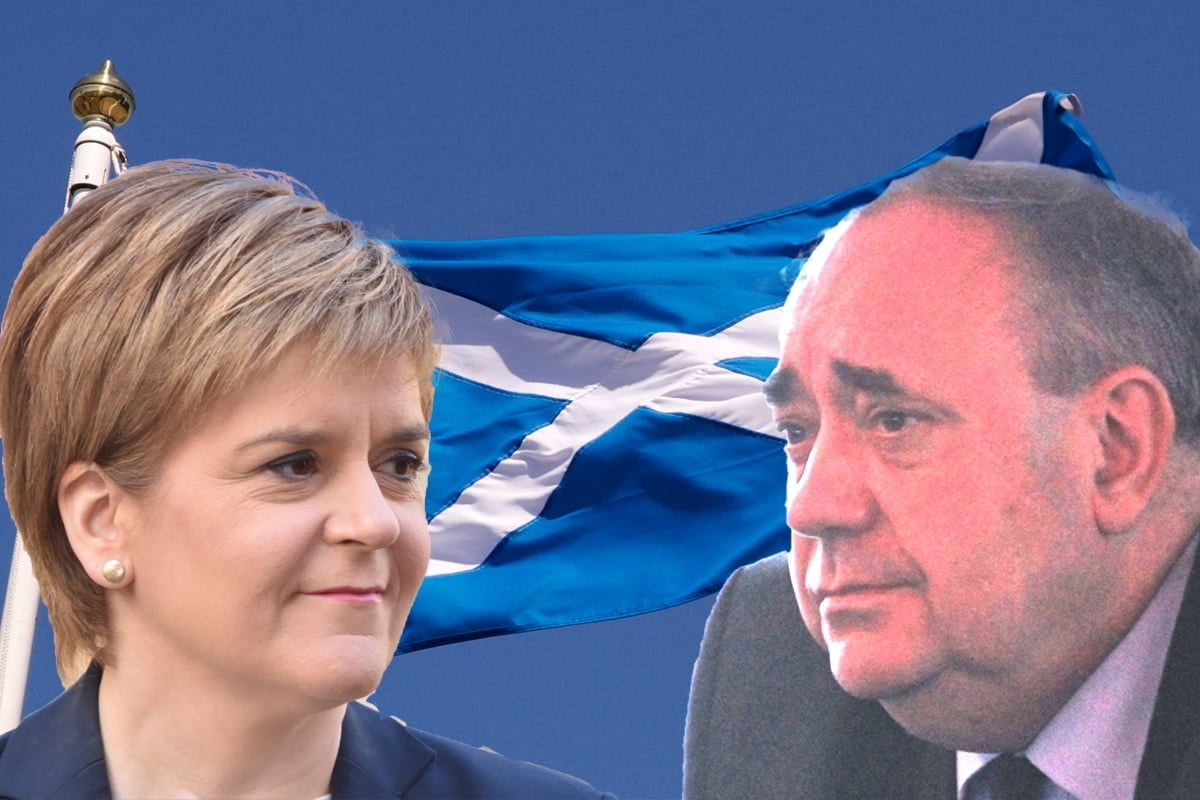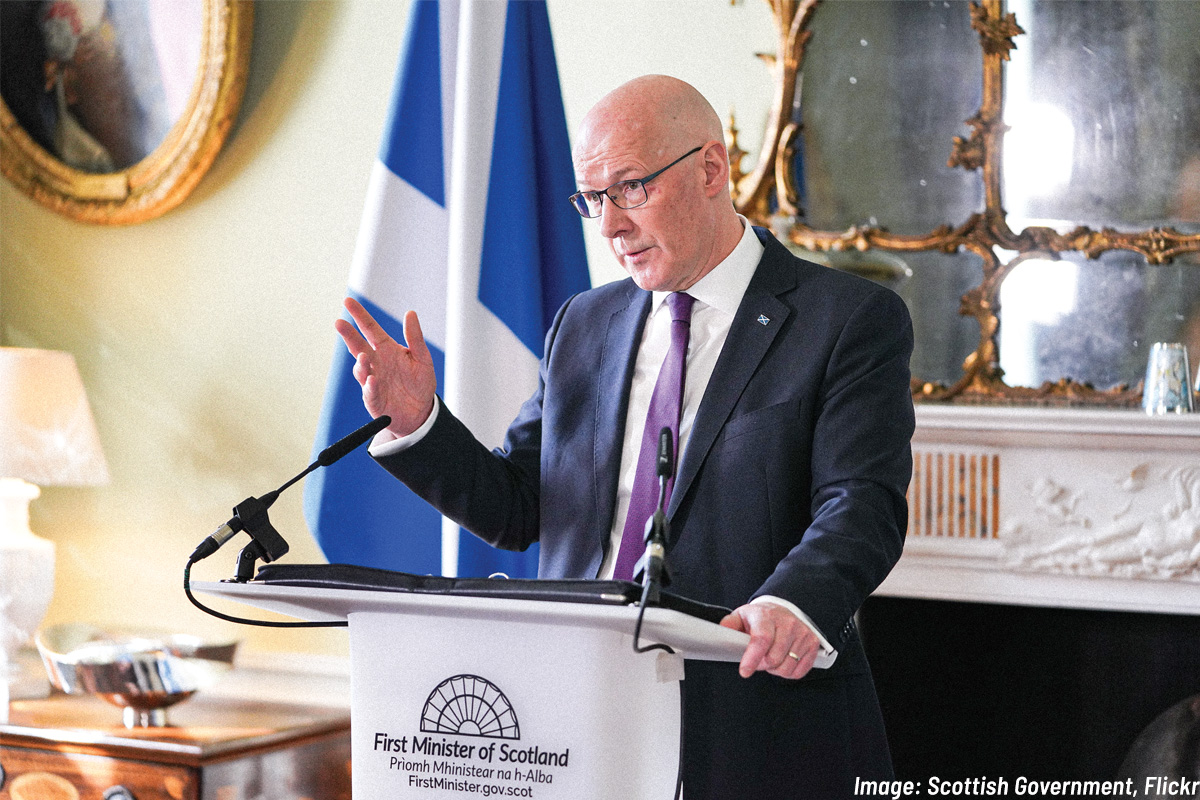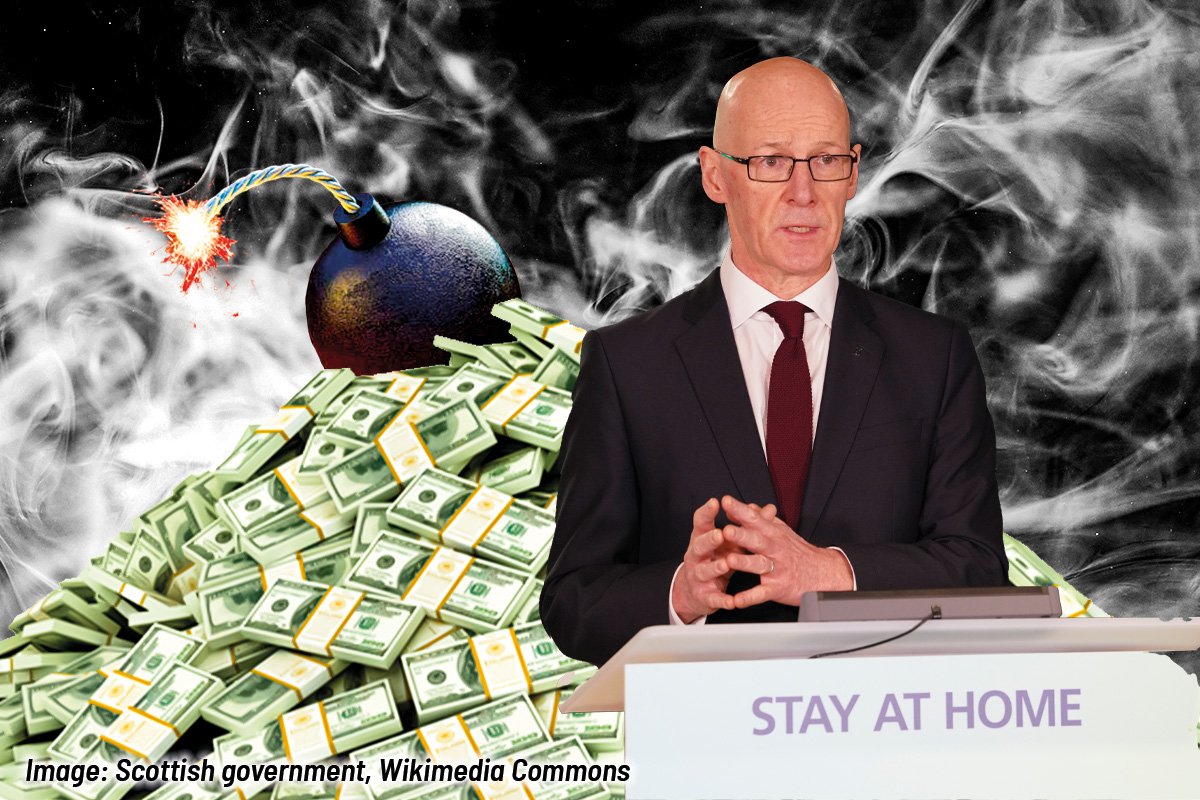Things are heating up in Scotland as elections approach. Former SNP leader Alex Salmond continues to clash with his successor, and has formed a new party. Holyrood and Westminster, meanwhile, are on a collision course over independence.
This May’s Holyrood elections in Scotland will be a landmark event. With the SNP on course to form the Scottish government for a fourth term, the question of independence is being thrust to the forefront once again.
The pandemic has exposed all the weaknesses of British capitalism, and the corruption at the heart of the Tory government. Chaos emanates from 10 Downing Street.
By contrast, the Scottish government has enjoyed the confidence of the public. Nicola Sturgeon is almost as trusted as Boris Johnson is hated.
Sturgeon and her government have cultivated an image of Scottish ‘competence’ during the pandemic. But this is largely a mirage, as shown by the crises in Scottish care homes and hospitals. Nevertheless, the SNP will most likely ride this perception to victory at the ballot box.
Under pressure
Where the SNP leaders may not rest on their laurels, however, is the question of independence. For a significant layer of voters, their support for the SNP is conditional on the party being able to lead the country to national independence.
The party leadership are under pressure to deliver. Over 20 consecutive polls have shown a historic majority in favour of independence. And there is a growing impatience within the ranks of the independence movement.
20 consecutive polls in support for Scottish Independence on the trot
Support for a United Ireland is getting stronger
Support for Welsh Indy is rising but this poll concludes much work to be done in the Welsh yes movement pic.twitter.com/i1HWH5SeI8— THE BLACK SALTIRE 3 (@saltire_3) January 23, 2021
Sturgeon’s strategy of simply asking Boris Johnson for permission to hold a referendum (via a Section 30 order) has proven untenable. Many are therefore looking to the Holyrood election for a way out of the impasse.
Nicola Sturgeon promises that, should the SNP win a majority in May, they will pass the Scottish Independence Referendum Bill. The bill outlines the rules of a new referendum, though does not commit to a specific date.
Alba
The SNP will struggle against the limitations of the Scottish electoral system in order to get a majority. This has led some independence movement activists to promote the idea of a ‘Max the Yes’ strategy for the election, encouraging SNP voters to use their second ballot to elect other pro-independence parties, and thus ensure a pro-Indy parliamentary majority.
In an unexpected turn of events, Alex Salmond is the latest to jump on this bandwagon, with the launch of his ‘Alba Party’ on 26 March. This came only days after his announcement that he would again sue the Scottish government, with Salmond directly pitching his party to those who feared their votes for the SNP would be wasted.
In the main, Alba has so far attracted a mix of anti-Sturgeon sceptics from the fringes of the independence movement.
Crucially, however, Alba has also won a number of defections from the SNP. MPs Kenny MacAskill and Neale Hanvey joined Alba shortly after its launch, along with several councillors. Inside sources say they expect more ahead of the election.
Defection from SNP to Alex Salmond’s new party: Kenny MacAskill. He’s already an MP, so Alba’s first parliamentarian – at Westminster.
MacAskill was Salmond’s justice secretary in ScotGov from 2007-14 when ‘Lockerbie bomber’ Megrahi was freed on compassionate grounds. @itvnews
— Peter A Smith (@PeterAdamSmith) March 27, 2021
The response of the SNP leaders so far has been to say ‘good riddance’, questioning the suitability of Salmond to hold elected office given the history of sexual harassment complaints against him. The launch of Alba is purely about Alex Salmond’s ego and desire for revenge, Sturgeon surmises.
Many of Alba’s candidates are distinctly big business. This contrasts strongly with the supposedly ‘social democratic’ platform that Salmond claims, and his reputation among his followers as a ‘radical’ alternative to Sturgeon. In reality, Alba is a completely bourgeois outfit; an attempted carbon-copy of the SNP.
Alba has nothing to offer the working class. But this hasn’t stopped some supposed left-wingers from naively throwing their lot in with the same man who created the modern SNP, warts and all.
Cynical Unionists
The Tories, Labour and Lib Dems in Scotland have all cynically used the Salmond versus Sturgeon ‘psychodrama’ to attack the SNP, even dragging the institutions of devolution into the scandal.
The Scottish Tories’ campaign to force the resignation of Nicola Sturgeon stalled after their No Confidence vote failed, and the First Minister was cleared of breaching the Ministerial Code.
In response to Alex Salmond’s Alba announcement, Scottish Tory leader Douglas Ross called for the formation of a “pro-UK, anti-referendum coalition” with Labour and the Lib Dems. Both parties rejected the idea, however, pointing out that Boris Johnson and the Tories do more harm to the Union than good.
Anas Sarwar has again rejected an anti-SNP coalition.
He would rather work with the SNP than work with unionist parties.
Only the Scottish Conservatives will do whatever it takes to stop the SNP and indyref2. pic.twitter.com/YpuNZ4RlKm
— Scottish Conservatives (@ScotTories) February 5, 2021
Nevertheless, the Tories have ramped up their campaign against an independence referendum. Their election propaganda continues to warn against a referendum “within months” if the SNP are left unobstructed.
Breaking point
This year’s Holyrood elections are set to be dominated by the national question again, perhaps even more than in any election since 2014. Holyrood and Westminster are heading towards a direct conflict over democracy and constitutional legality.
Explosive conditions are brewing – in Scotland, across Britain, and around the world. We must build the forces of Marxism and prepare for the titanic events that lie ahead.






